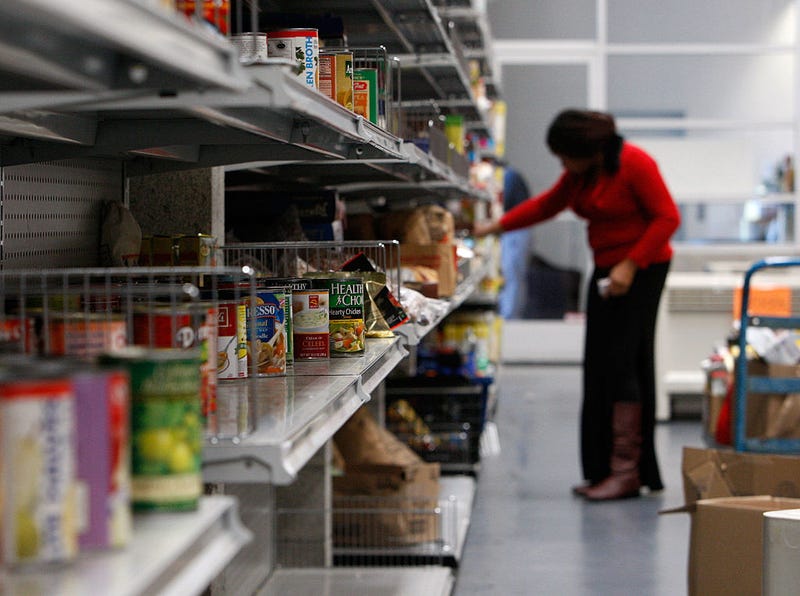
Food banks in states across the nation are struggling to keep up with a sudden increase in demand, brought on by skyrocketing inflation.
As the cost of groceries, gas and rent rise, more people reaching out for assistance putting food on the table -- but some pantries are having a hard time keeping their shelves stocked.
The inflation rate is the highest it has been in 40 years, and it definitely shows in food prices. According to the U.S. Department of Agriculture, food prices in April 2022 were 9.4% higher than a year earlier. Analysts also expect all food prices will increase an additional 6.5% to 7.5% by the end of the year, so any sudden relief doesn't appear to be anywhere in sight.
That certainly won't do anything to ease the pressure on food banks, which have become essential for some families.
"Our experience is that this rise in food and fuel costs are creating just as precarious a situation for people who are trying to feed their families as was the case during the pandemic," Katie Fitzgerald, president of Feeding America, told NPR.
Fitzgerald said food banks are experiencing a "drumbeat of increasing demand, month over month," and that many are stretching their inventory to be able to meet more people's needs. That includes dipping into emergency reserves, switching to cheaper products and limiting how often people can visit.
About 65% of the 200 food banks in the Feeding America network reported a greater demand for food assistance in March compared with the previous month, with an average increase of 15% more people, CNN reported.
Meantime, it's getting more difficult and more expensive for food banks to stay stocked, according to President and CEO of Mid-Ohio Food Collective Matt Habash.
"Supply chain issues and a decrease in food donations are making it more difficult and more expensive to obtain food," Habash wrote in an op-ed in The Columbus Dispatch. "Food banks are purchasing nearly as much food as they did in 2021 but are paying 40% more for it."
Some hunger-relief organizations are also seeing a dip in cash donations.
"As the communities we serve tighten their belts, our donors are needing to do that, as well," Benton Coblentz, chair of the Tukwila Food Pantry, told The Seattle Times.
Quite simply, food banks are in danger of running out of food, according to Vince Hall, Feeding America's chief government relations officer.
"We are doing everything we can to avert a major hunger crisis," Hall told CNN.
Feeding America is asking Congress to provide an additional $900 million for the Emergency Food Assistance Program to support food banks and extend child nutrition waivers.
"We are facing a historically unprecedented set of simultaneous challenges and we need to strengthen our commitment and resolve to support our neighbors' ability to not just to survive, but to thrive," Claire Babineaux-Fontenot, CEO of Feeding America, said in a statement. "We are asking for USDA and Congress along with our partners and supporters to help us through this storm."
The Biden administration on Wednesday unveiled a $2 billion plan to strengthen food supply chains hard hit by the pandemic, according to NPR.


